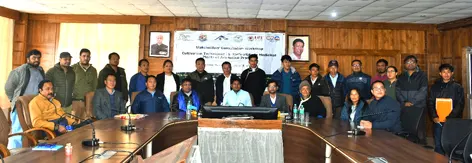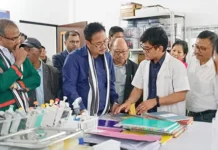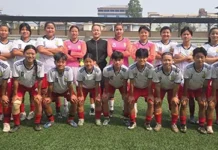TAWANG, 25 Aug: A stakeholders’ consultation workshop on ‘Cultivation techniques for high-altitude medicinal plants of Arunachal Pradesh’ was held at the DC office conference hall here on Friday.
Addressing the workshop, organised jointly by the GB Pant National Institute of Himalayan Environment’s Northeast Regional Centre (GBPNIHE-NERC) and the State Medicinal Plants Board, Tawang DC (i/c) Rinchin Leta stressed on the need for documentation of medicinal plants of Tawang district used in traditional healing systems by the local communities.
He urged the participants to engage with elderly citizens, local medicinal plant growers and traditional healers “for proper documentation and validation of the traditional knowledge associated with medicinal plants.”
This was followed by presentations on the high-altitude medicinal plants of Arunachal Pradesh and medicinal plant cultivation in the western Himalayas by GBPNIHE scientist Dr Wishfully Mylliemngap and GBPNIHE Senior Project Officer Dr Laxman Singh, respectively.
They highlighted the important high-altitude medicinal plant species having high market value and potential for cultivation and marketing, as well as the agro-techniques and market value chain development for some selected species demonstrated by the GBPNIHE in the western Himalayan region.
During the panel discussion, chaired by DFO Piyush Gaikwad, key issues such as documentation of medicinal plant resources; capacity building and training of stakeholders; linkages between government agencies and local beneficiaries; market value chain and existing issue; and problems in medicinal plant cultivation and marketing were discussed.
It was resolved to prioritise documentation of the medicinal plants of Tawang district; capacity building and awareness creation among local NGOs and SHGs; formulation of regulatory measures for harvesting, cultivation and trade of medicinal plants; and a multi-stakeholder approach for promoting medicinal plant cultivation and marketing by involving research organisations, line departments and progressive farmers for lab-to-land transfer of technologies.
About 50 participants, including officials from the agriculture and horticulture departments and the DRDA, members of local NGOs, GPCs of different villages, and medicinal plant cultivators attended the workshop.



